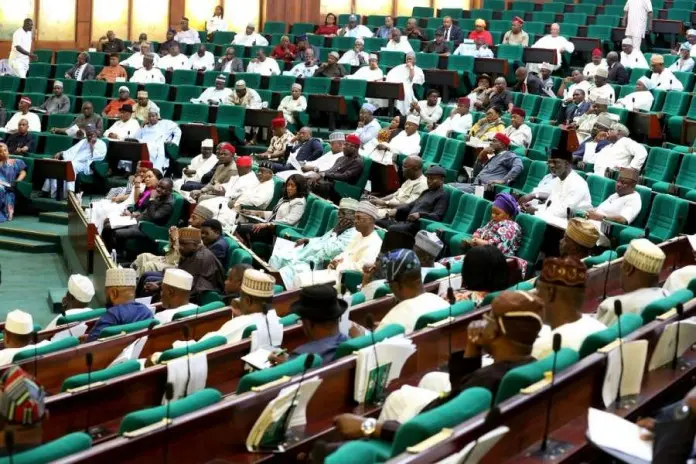The House of Representatives on Wednesday passed for second reading a bill seeking to establish a National Tax Crimes and Oversight Commission to tackle revenue leakages in the country.
Titled “A Bill for an Act to Establish the National Tax Crimes and Oversight Commission to Address Revenue Leakages Emanating from Non-payment and Under Payment of Taxes, Irregularities in the Assessment, Reporting and Remittances of Taxes to Prevent and Combat Tax Related Crimes, to Ensure the Protection of Taxpayers Rights and for Related Matters,” the proposed legislation is sponsored by the Deputy Speaker of the House, Hon. Benjamin Okezie Kalu and 8 others.
Leading the debate on its general principles, one of the co-sponsors, Hon. Felix Uche Nweke said the Commission, when established, will check irregularities in the assessment, reporting, and remittances of taxes, prevent and combat tax-related crimes, and plug all leakages in the tax administration system in the country.
The lawmaker noted that leakages occur where unscrupulous staff and agents of tax authorities collude with citizens to under-assess the tax-payer thereby resulting in underpayment.
He said leakages also occur in the form of tax evasion, especially such that is encouraged and condoned by the tax collector and more especially among multinational corporations operating within the country.
Nweke further said leakages also occur where there are non-remittances of collected taxes, that is to say where government does not get the total amount of taxes collected as a result of revenue diversion by fraudulent staff of tax authorities.
He said there is a need to establish an Independent Tax Crimes and Oversight Commission, which will have the capacity to investigate, audit, prevent and combat tax related crimes.
This, the lawmaker said, will effectively prevent international tax evasion and other transnational organised crimes and abuses of the nation’s public finance system.
He stressed that the bill seeks to promote economic efficiency and effective tax administration system, detect and deter evasion, fraud and abuse in Nigeria’s tax administration system and to protect taxpayer’s rights.
Nweke said: “The amount of revenue available to any government determines the extent to which such a government may be able to provide public goods and services. It is a pointer to how far a nation can ensure her growth and development.
“While taxation is considered the most important means of generating public revenue, it is worthy of note that nations that strive to develop aim at putting in place a fair, just, efficient and simplified tax administration system which builds confidence amongst the citizens and as well motivates and encourages citizens to pay their taxes.
“While it is one thing to fix the amount of taxes to be paid, it is another for tax collection authorities and assessors to determine the right amount of taxes to be paid in accordance with the provisions of extant tax laws. This will definitely contribute to our national security through prevention of tax related crimes, prevention of illicit financial flow derived from tax evasion, international tax schemes, cybercrime, etc.
“The Tax Crimes and Oversight Commission will not function as a law court, it will not duplicate the functions of the Tax Appeal Tribunals established in accordance with section 59(1) of the Federal Inland Revenue Service (Establishment) Act, 2007 and ti will not be saddled with any form of quasi-judicial functions.”
We’ve got the edge. Get real-time reports, breaking scoops, and exclusive angles delivered straight to your phone. Don’t settle for stale news. Join LEADERSHIP NEWS on WhatsApp for 24/7 updates →
Join Our WhatsApp Channel










